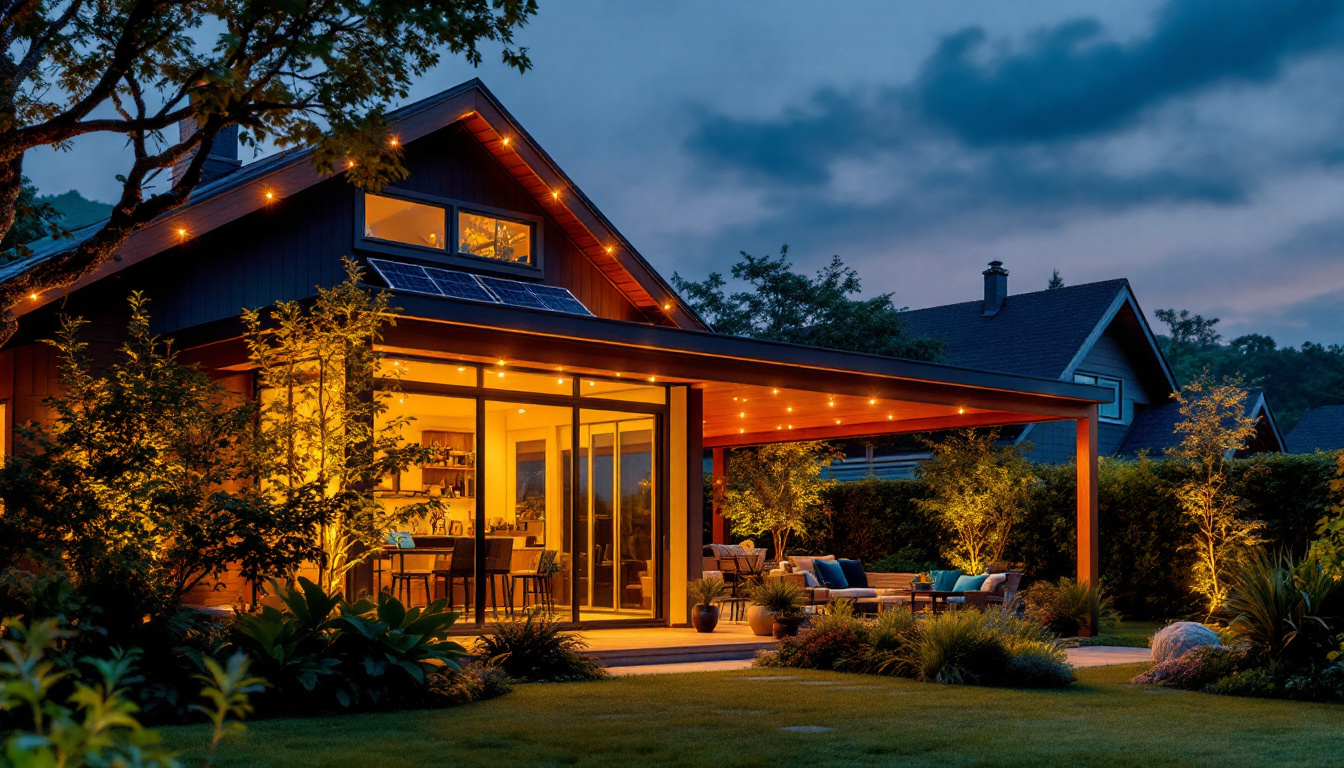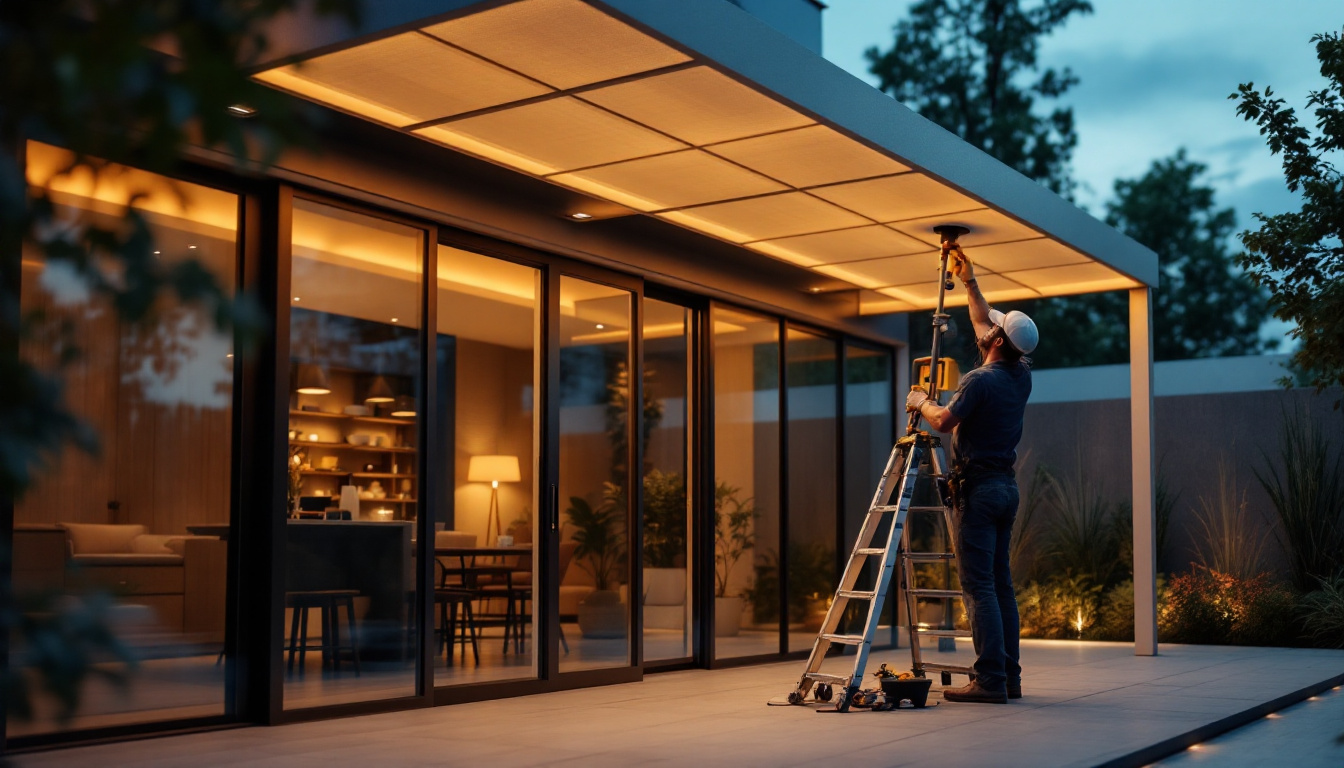

As the demand for sustainable energy solutions continues to rise, solar panel outdoor lights have become a popular choice for both residential and commercial lighting projects. However, despite their benefits, many lighting contractors encounter challenges that can lead to costly mistakes. Understanding these pitfalls can help ensure successful installations and satisfied clients. This article explores the common errors in solar lighting projects and offers guidance on how to avoid them.
Solar panel outdoor lights are increasingly favored for their energy efficiency and environmental benefits. They harness sunlight during the day and convert it into electricity, allowing for illumination without relying on grid power. This not only reduces energy costs but also minimizes the carbon footprint of lighting projects. As more homeowners and businesses recognize the importance of sustainability, the demand for solar lighting solutions continues to rise, making it a viable option for both urban and rural settings.
One of the primary advantages of solar lighting is its independence from electrical wiring. This feature simplifies installation, making it an attractive option for remote areas or locations where traditional wiring is impractical. Furthermore, advancements in solar technology have led to improved efficiency and longer-lasting batteries, enhancing the reliability of solar lights. Many modern solar lights now utilize LED technology, which not only consumes less energy but also provides brighter illumination, extending the usability of outdoor spaces into the night.
Moreover, solar lights often come with built-in sensors that automatically turn the lights on at dusk and off at dawn, providing convenience and energy savings. This automation, combined with minimal maintenance requirements, makes solar lighting an appealing choice for contractors and clients alike. Additionally, many solar lights are designed with durability in mind, featuring weather-resistant materials that can withstand harsh environmental conditions, ensuring longevity and consistent performance throughout the seasons.
Before embarking on a solar lighting project, it is crucial for contractors to fully understand the specific needs and expectations of their clients. This includes discussing the intended use of the lighting, desired aesthetics, and budget constraints. A thorough needs assessment can help prevent misunderstandings and ensure that the final installation meets client expectations. Engaging clients in the design process can also foster a sense of ownership and satisfaction, as they see their ideas and preferences reflected in the final product.
Furthermore, it is essential to consider the unique characteristics of the installation site. Factors such as the amount of sunlight the area receives, potential obstructions like trees or buildings, and the overall landscape design can significantly impact the effectiveness of solar lighting. By conducting a comprehensive site analysis, contractors can recommend the best solar lighting solutions that not only meet functional requirements but also enhance the aesthetic appeal of the outdoor space. This attention to detail can lead to successful projects that delight clients and elevate the overall value of their properties.
Even with the best intentions, contractors can make mistakes that lead to subpar results. Identifying these common errors can help avoid costly rework and enhance project outcomes.
One of the most frequent mistakes is underestimating the solar energy requirements for a particular project. Factors such as geographic location, seasonal variations, and shading from nearby structures can significantly impact the performance of solar lights. Contractors must assess these variables to determine the appropriate wattage and battery capacity needed for optimal functionality.
Additionally, it is essential to consider the number of hours the lights will need to operate each night. A thorough analysis of these requirements will ensure that the selected solar fixtures can meet the demands of the project without failure. For instance, in regions with longer nights during winter months, the energy storage capacity must be sufficient to sustain lighting for extended periods. Moreover, conducting a site survey to identify potential obstacles that could obstruct sunlight during the day can further refine the energy calculations, ensuring that the solar lights will perform reliably throughout the year.
Not all solar lights are created equal. Contractors often fall into the trap of choosing cheaper options without considering the quality and specifications of the products. Low-quality solar lights may offer poor performance, shorter lifespans, and inadequate brightness, leading to client dissatisfaction.
When selecting solar lighting products, it is vital to evaluate factors such as lumens output, battery capacity, and solar panel efficiency. Investing in high-quality fixtures will ultimately save time and money by reducing the likelihood of replacements and repairs. Furthermore, understanding the warranty and support options provided by manufacturers can also play a crucial role in the decision-making process. A reputable manufacturer will often offer longer warranties and better customer service, which can be invaluable if issues arise post-installation. Additionally, contractors should consider the aesthetic and functional aspects of the lighting design, ensuring that the fixtures not only perform well but also complement the surrounding environment and meet the client’s vision for the space.
Proper installation is crucial for the success of any solar lighting project. However, several challenges can arise during the installation process that may hinder performance.
The placement and orientation of solar lights are critical for maximizing solar energy absorption. A common mistake is installing lights in shaded areas or facing them away from direct sunlight. This can significantly reduce their efficiency and effectiveness.
Contractors should conduct a site assessment to identify optimal locations for solar lights, ensuring they receive adequate sunlight throughout the day. Additionally, adjusting the angle of solar panels can enhance energy capture, particularly during different seasons.
Another challenge is managing the batteries that power solar lights. Many contractors overlook the importance of battery maintenance and replacement schedules. Over time, batteries can lose their capacity to hold a charge, leading to diminished performance.
To avoid this issue, it is advisable to educate clients on the lifespan of batteries and the signs that indicate a need for replacement. Implementing a maintenance plan can also help extend the life of the solar lighting system and ensure consistent performance.
While functionality is paramount in solar lighting projects, aesthetics should not be overlooked. The visual appeal of outdoor lighting can significantly impact the overall ambiance of a space.
When planning a solar lighting project, contractors should consider the design elements that complement the surrounding environment. This includes selecting fixtures that match the architectural style of the property and choosing colors that harmonize with the landscape.
Furthermore, the arrangement of lights can create visual interest and enhance safety. For instance, strategically placing lights along pathways or around landscaping features can improve visibility and create a welcoming atmosphere.
Incorporating smart technology into solar lighting systems can elevate both functionality and user experience. Features such as remote control, dimming capabilities, and motion sensors can provide added convenience and energy savings.
As smart home technology continues to gain traction, clients may expect these features in their outdoor lighting systems. Staying informed about the latest advancements in solar technology can help contractors offer innovative solutions that meet client demands.
Budgeting is a critical aspect of any lighting project, and solar installations are no exception. Understanding how to manage costs effectively can prevent financial pitfalls.
Contractors should provide clients with a detailed breakdown of costs associated with solar lighting projects. This includes not only the price of fixtures but also installation labor, maintenance, and potential future upgrades. Transparent budgeting helps clients understand the value of their investment and can prevent disputes later on.
Additionally, contractors should be aware of potential hidden costs, such as site preparation or the need for additional equipment. By anticipating these expenses, contractors can create a more accurate budget that reflects the true cost of the project.
Many regions offer incentives and rebates for solar energy installations, which can significantly reduce overall costs. Contractors should stay informed about local programs and educate clients on how to take advantage of these opportunities.
By incorporating potential savings from incentives into project proposals, contractors can enhance the attractiveness of solar lighting solutions and encourage clients to invest in sustainable options.
Once the installation is complete, the relationship between the contractor and the client does not end. Providing ongoing support and maintenance is essential for ensuring the long-term success of solar lighting projects.
Contractors should offer maintenance plans that outline regular inspections and servicing of solar lighting systems. This proactive approach can help identify issues before they escalate, ensuring that lights remain functional and effective.
Clients may appreciate the peace of mind that comes with a maintenance agreement, knowing that their investment is protected and that they can rely on the contractor for support.
Encouraging client feedback after project completion can provide valuable insights into the effectiveness of the installation. Understanding client satisfaction and areas for improvement can help contractors refine their processes and enhance future projects.
Moreover, staying connected with clients can lead to repeat business and referrals, contributing to the growth of the contractor’s reputation in the solar lighting market.
Solar panel outdoor lights present a unique opportunity for lighting contractors to offer sustainable and cost-effective solutions. However, avoiding common mistakes is crucial for ensuring successful installations and satisfied clients. By understanding the requirements of solar lighting, paying attention to quality, and providing ongoing support, contractors can enhance their project outcomes and build lasting relationships with clients.
As the market for solar lighting continues to evolve, staying informed about advancements in technology and design will be essential for contractors looking to thrive in this competitive field. With careful planning and execution, solar lighting projects can illuminate the path toward a more sustainable future.
Ready to elevate your solar lighting projects with the highest quality products at the most competitive prices? Look no further than LumenWholesale. We specialize in providing contractors with spec-grade lighting solutions that meet the most rigorous industry standards. Say goodbye to inflated markups and hello to unbeatable wholesale value. Plus, with free shipping on bulk orders, you can trust that you’re getting premium lighting without any hidden costs. Don’t compromise on quality or affordability. Choose LumenWholesale for Wholesale Lighting at the Best Value and light up your clients’ spaces with confidence and convenience.

Discover the secrets to maximizing efficiency in greenhouse lighting with our comprehensive guide.

Discover how partnering with canopy light specialists can elevate your business.

Discover expert tips for lighting contractors to seamlessly install bedroom flush mount lighting.

Discover the top five reasons why lighting contractors should prioritize different types of fluorescent lights.
Get notified when NEW deals are released.
Optimize your budget with wholesale discounts.
Only top-quality, specification-grade lighting products.
No additional costs at checkout - what you see is what you pay.
We understand the unique needs of contractors.